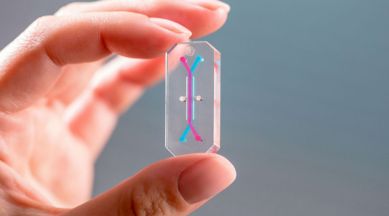Soon, tiny ‘organ on chips’ may replace animal testing
Researchers have developed a new 'organs-on-chips' technology that could replace animals for testing new drugs or supplements.

Researchers have developed a new ‘organs-on-chips’ technology that could replace animals for testing new drugs or supplements.The flexible polymer organ-chips contain tiny channels lined with living human cells and are capable of reproducing blood and air flow just as in the human body.The chips are translucent, giving researchers a window into the inner workings of the organ being studied.
Last week, the US Food and Drug Administration (FDA) announced a multi-year research and development agreement with a company called Emulate, founded by researchers at Harvard University, to evaluate the “organs-on-chips” technology.Research will begin with a liver-chip but the agreement may expand in the future to cover additional organ-chips, including kidney, lung and intestine models, FDA said.
monthly limit of free stories.
with an Express account.
The ultimate goal is to predict how specific organs will respond to exposure to potential chemical hazards found in foods, cosmetics and/or dietary supplements with greater precision than other methods currently being used, such as cell-culture or animal-based tests.”The chips were first developed to evaluate the effectiveness of drugs but have come to be seen as a potentially useful technology in our efforts to ensure the safety of the foods and cosmetics we regulate,” FDA said.
Also Read: Cloning of human organs a step closer?
“For example, they can be put to work to see how the body processes an ingredient in a dietary supplement or a chemical in a cosmetic and how a toxin or combination of toxins affects cells, information that ultimately can be used to help assess risks to human health,” it said.Organs-on-chips have been the focus of a public-private collaboration between FDA, the Defence Advanced Research Projects Agency (DARPA) and the National Institutes of Health (NIH) since 2012.